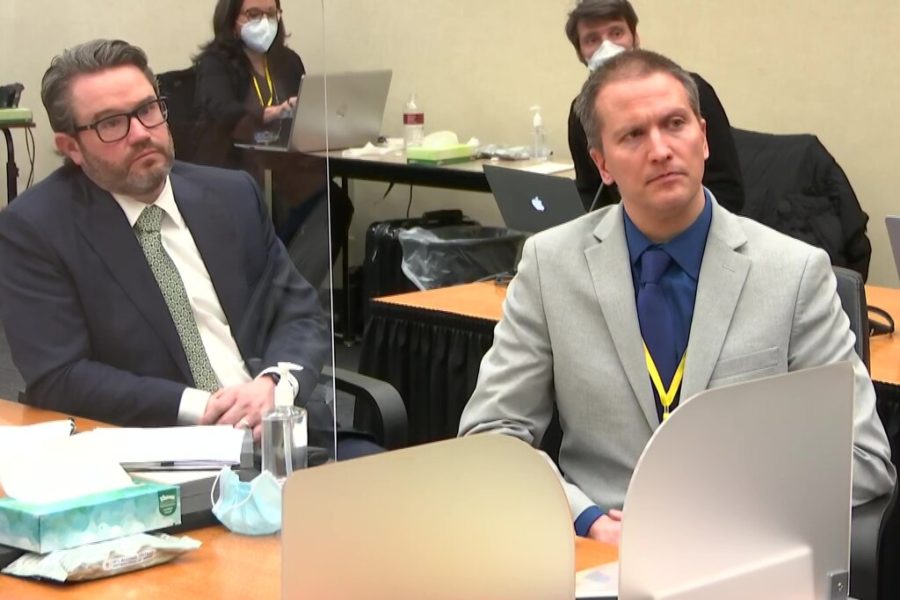Derek Chauvin Convicted of Murder
April 21, 2021
On Apr. 20, former Minneapolis Officer Derek Chauvin was convicted of the murder of George Floyd, who died in May 2020 after Chauvin pinned him to the pavement with his knee for over nine minutes. After more than ten hours of deliberation over two days by the jurors, Chauvin was convicted of second-degree unintentional murder, third-degree murder, and second-degree manslaughter.
The defense claimed Floyd died of a combination of cardiac arrest and illicit drugs. Their witnesses testified that Floyd demonstrated agitated and anxious behavior indicative of delirium, and that Chauvin’s actions were justified in accordance with Minneapolis Police Department policies.
During the trial, 38 witnesses were called to testify by prosecutors. Witnesses included bystanders at the scene of Floyd’s death, who testified about their fear and the horror they felt.
Then, police supervisors and use-of-force experts claimed that Chauvin’s kneeling on Floyd even after the man passed out, stopped breathing, and no longer had a pulse, was excessive and unreasonable.
Medical experts at the trial explained that Floyd had died from a lack of oxygen categorized as positional asphyxia from when Chauvin prevented him from breathing properly.
“He was not going to let these bystanders tell him what to do,” prosecutor Steve Schleicher said of Chauvin in the state’s closing argument. “He was going to do what he wanted, how he wanted, for as long as wanted. And there was nothing, nothing they can do about it because he had the authority. He had the power, and the other officers, the bystanders were powerless. He was trying to win, and George Floyd paid for it with his life.”
After the jury returned Chauvin’s verdict, President Joe Biden and Vice President Kamala Harris addressed the nation from the White House. President Biden said Floyd’s death exposed the world to the racial and policing issues in the U.S. Vice President Harris said that though Chauvin had been found guilty of his charges, there is still much work to be done to reform the American criminal justice system.
“It’s not enough. We can’t stop here,” said President Biden. “We’re going to deliver real change and reform. We can and we must do more to reduce the likelihood that tragedies like this will ever happen again.”
Floyd’s family celebrated the conviction.
“Justice for George, it means freedom for all,” said Philonoise Floyd, Floyd’s brother. “The world has sparked, and lit up with a blaze tonight. And it’s a celebration. Business can be taken care of tomorrow, but it’s a celebration today.”
Chauvin faces up to 40 years in prison for the second-degree unintentional murder charge, up to 25 years for third-degree murder, and up to 10 years for manslaughter. Minnesota’s sentencing guidelines typically recommend about four years in prison for manslaughter and around 12.5 years in prison for each murder charge, but in Chauvin’s case, the state requested a harsher sentence.
Chauvin’s sentencing will take place in approximately eight weeks.

